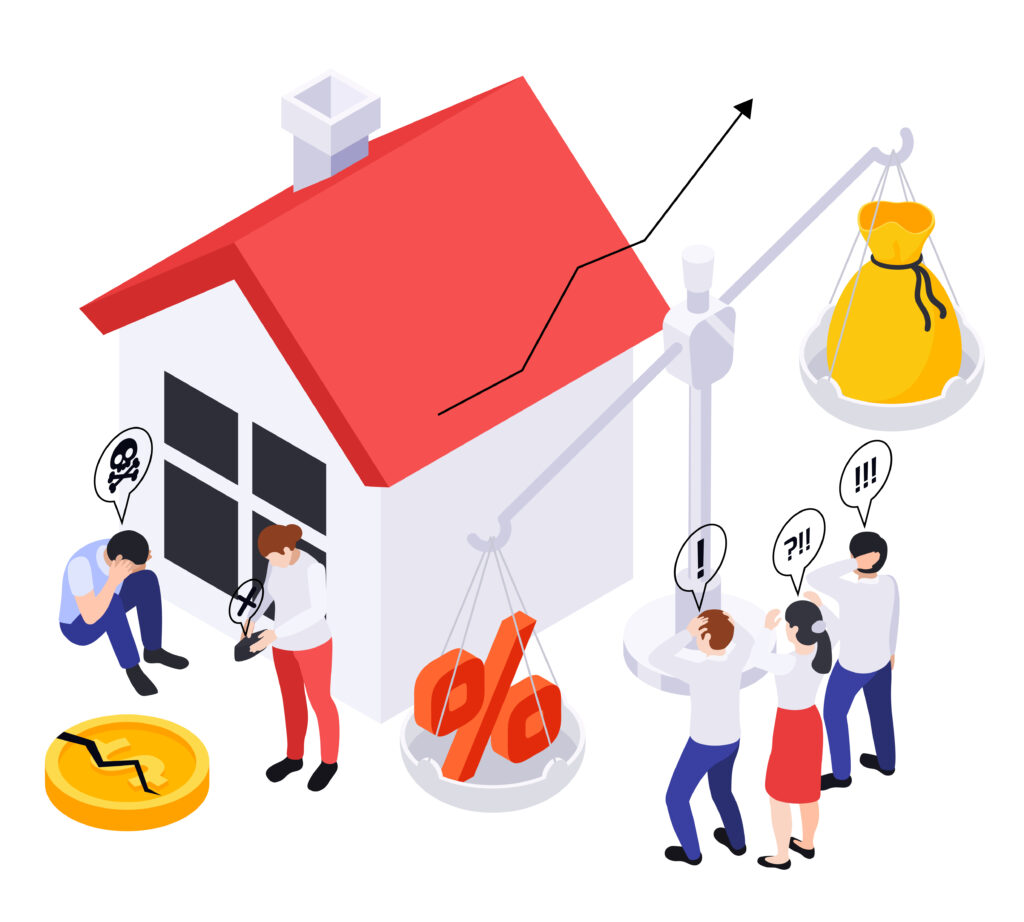Foreclosure can be a challenging and emotional experience for homeowners, but it also represents opportunities for investors. Understanding the phases of foreclosure is crucial for both sides of the transaction. Whether you’re trying to navigate the process as a distressed homeowner or hoping to purchase a property as an investor, this guide will walk you through the different phases of foreclosure.
Pre-Foreclosure: The Wake-Up Call
What It Is:
Pre-foreclosure begins when a homeowner misses their mortgage payments, usually for 90 days or more The lender issues a Notice of Default (NOD) to notify the borrower of their delinquency and provide an opportunity to resolve the issue. This is the official signal that foreclosure could be on the horizon.
Homeowner Perspective:
This phase is critical for homeowners to explore options to avoid foreclosure. The homeowner can attempt to catch up on missed payments or negotiate a repayment plan with the lender. Selling the property quickly can also be an option to avoid foreclosure, often at a discount to attract buyers. This is where short sales come into play, where the lender agrees to accept less than the owed mortgage balance.
Investor Perspective:
Investors see pre-foreclosure as an opportunity to approach motivated sellers. These properties are often discounted, as sellers aim to avoid foreclosure’s long-term financial consequences.
Foreclosure Filing: The Legal Start
What It Is:
If the homeowner cannot resolve the missed payments, the lender officially files a foreclosure lawsuit (judicial foreclosure) or records a notice of sale (non-judicial foreclosure).
Homeowner Perspective:
At this stage, time is of the essence. Legal notices often specify a time-frame for resolving the debt or losing the property. Seeking legal advice or consulting a housing counselor can help homeowners navigate this phase.
Investor Perspective:
This is a prime moment to monitor foreclosure listings, courthouse auctions, or reach out to homeowners directly. A strategic and empathetic approach can yield profitable investments.
Auction: The Public Sale
What It Is:
The property is sold at a public auction to the highest bidder. The starting bid usually covers the loan balance, interest, and any legal fees.
Homeowner Perspective:
Once the property goes to auction, the homeowner generally loses possession. Redemption periods (if available in the state) may provide a small window to reclaim the property.
Investor Perspective:
For investors, auctions are a gold mine for acquiring properties at below-market prices. However, due diligence is essential. Properties are typically sold “as is,” and there’s limited opportunity to inspect them beforehand. Buyers may purchase homes at a reduced price, but they must also account for risks like unpaid liens or limited property access for inspections.
Post-Foreclosure (Real Estate Owned or REO): Bank Takes Over
What It Is:
If the property doesn’t sell at auction, it becomes Real Estate Owned (REO) and goes back to the lender or bank. The lender typically clears any existing liens and prepares the property for sale. REO properties are listed in traditional MLS systems, making them accessible to more buyers. These homes may still be sold “as-is,” requiring buyers to budget for repairs or updates.
Homeowner Perspective:
In some states, homeowners have a redemption period after foreclosure where they can repurchase their home by paying off the debt. However, if no redemption occurs, the property officially transfers to the new owner or remains under the lender’s ownership until sold. At this point, the homeowner has generally vacated the property. Financial recovery can begin by focusing on rebuilding credit and exploring future housing options, though the foreclosure remains on their credit report for years.
Investor Perspective:
REO properties often end up listed on the market through real estate agents or specialized platforms. These homes are an excellent opportunity for investors looking for properties that require less risk than auction purchases.
HOW WE CAN HELP?
For us, it isn’t just about mitigating loss or chasing deals; it’s about turning challenges into opportunities and helping people find their footing in uncertain times. We’ve helped plenty of neighbors by partnering with them to turn their story around. The video below is a real life example of not only how we operate as a company, but also our commitment to our community. To learn more about us, click here. If you or a loved one needs to reach out, please call 803-795-7676 or click here.

